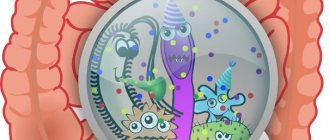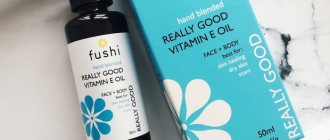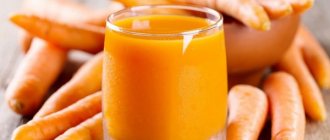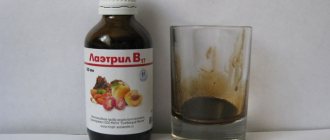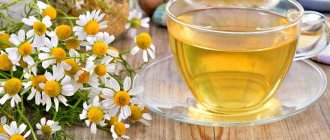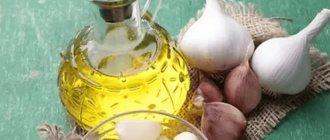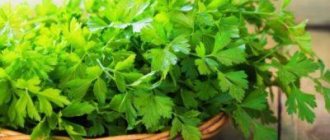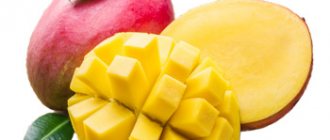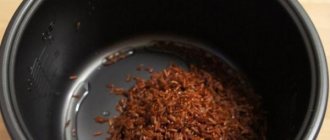Ekaterina Smolnikova
Practicing endocrinologist (10 years of experience). He has extensive experience working in private and public clinics in Russia.
Ask a Question
Beta-carotene is a provitamin of vitamin A, a natural antioxidant, normalizes numerous functions in the body. It is obtained from plant and, to a lesser extent, animal foods: the human body cannot produce it. The first synthesized beta-carotene was obtained chemically in 1956.
Products containing beta-carotene
Beta-carotene belongs to the class of carotenoids. The name “carotene” is translated as “carota” - carrots. The yellow-orange pigment that gives plants their color is produced by photosynthesis. The amount of carotene determines the color intensity from yellow to red.
The vitamin dissolves in the presence of fat. Significant absorption of carotene is obtained with the use of vegetable oils. Carrots will give off vitamins if you grate them and season them with vegetable oil, without heat treatment. Only part of beta-carotene is converted into vitamin A in the body: one of 12 molecules. The crystals are reddish-violet in color and turn orange to yellow in solution.
Foods rich in carotene:
- sea buckthorn oil;
- sorrel, pepper;
- watermelons;
- pumpkins;
- grapefruits;
- apricots;
- peaches;
- Brussels sprouts and red cabbage;
- zucchini;
- parsley;
- salad;
- green onions;
- tomatoes;
- chicory.
Small amounts of the vitamin are found in corn, barley, seaweed, pine nuts, lettuce, and spinach. To a lesser extent, provitamin A is present in products of animal origin: milk, cream, sour cream, cheese, cottage cheese, egg yolk, butter, liver.
Beta-carotene is used as a harmless food additive in food products under code E160a.
Important. Synthetic beta-carotene can cause allergies in rare cases.
Beta-carotene in foods
A lot of beta-carotene is found in carrots and their juice.
The most famous source of carotene is carrots. Carrot juice is also rich in it - naturally, freshly squeezed and drunk immediately, within 5-10 minutes after preparation.
Carrots contain approximately 8-9 mg of beta-carotene per 100 g
Carotene in pumpkin – 4 mg per 100 g of product. It is also found in other vegetables: tomatoes, paprika, Brussels sprouts and red cabbage, broccoli, kohlrabi. And also in wild garlic, spinach, parsley, green onions, lettuce.
Berries and fruits are rich in this nutrient, such as: pineapple, rose hips, sea buckthorn, rowan, melon, peach, watermelon. Among the nuts, pine nuts can be distinguished.
If you are a lacto-vegetarian and consume dairy products, then it will be useful for you to know that beta-carotene is found in butter, cream, cheeses, cottage cheese, and sour cream.
As you can see, even those people who do not eat food of animal origin can easily obtain this substance along with plant foods. And in order for it to be well absorbed, I advise you to remember a few simple rules for its use.
Interestingly, beta-carotene is better absorbed if the shell of a vegetable or fruit is destroyed. This is why, for example, carrot juice is considered such an effective remedy for a deficiency of this substance. You can make salads, smoothies, and lightly steam foods with carotene. Just don't overdo it, please!
Heat treatment reduces the beta-carotene content in food by an average of 20-40%
Let me remind you that carotenes are perfectly absorbed with fats, so try to eat them together. It’s not difficult at all - season the carrot-pumpkin salad with natural unrefined extra virgin olive oil with a high content of vitamin E.
Beta-carotene is best consumed with vegetable oil
I draw your attention to the fact that such dishes must be eaten fresh. Carotenes are afraid of sunlight and exposure to oxygen, and therefore after 15-20 minutes their amount in food decreases significantly.
It is believed that they are preserved almost completely in frozen products.
By the way, beta-carotene, converted into vitamin A in the body, accumulates in the liver and is gradually consumed from there when we need it. Yes, indeed, but what do we need this carotenoid for?
Back to contents
Effect of beta carotene
The influence of the external environment, viruses are factors in the appearance of free radicals in cells involved in biological processes. Lymphocytes form radicals in the immune system.
An excess of radicals is harmful, as they damage nucleic acids, cell membranes, and proteins that make up cartilage. Free radicals are capable of creating chain reactions that are dangerous to the body. Antioxidant molecules bind them.
- Beta-carotene maintains the optimal ratio of oxidants and antioxidants in the body for healthy functioning and reduces the impact of environmental pollution.
- Prevents tissue deformation processes, the growth of atherosclerosis, the development of cardiac pathologies, regulates cholesterol levels, has a positive effect on the skin: protects against ultraviolet rays and sun burns.
- Gentle healing effect on hair and nails, protects against redness and itching. The accumulation of beta-carotene in the skin gives a beautiful tan.
Article on the topic:
Top 12 foods containing folic acid
Beta-carotene accelerates the healing of the skin from injuries, ulcers, and wounds; used for rinsing the mouth and teeth, helps restore bone tissue, strengthens mucous membranes.
- Supports prostate function, the immune system, and fights infections.
- The vitamin inhibits the development of eye diseases, promotes clarity of vision, and affects the function of the retina in old age. Rhodopsin with vitamin tunes the eyes to work in twilight; beta-carotene deficiency leads to a decrease in this ability.
- Impact doses of beta-carotene destroy cells in AIDS significantly less.
Beta-carotene helps strengthen skin cells on the scalp. The vitamin is not harmful in large dosages. Adults have a high ability to absorb: vitamin from approximately 10 to 40%, children - to a lesser extent.
- Carotene is used to prevent cancer of the lungs and cervix.
Forms of release of beta-carotene: which carotenoids are used in the food industry
To improve the characteristics of food products, vitamin supplements of various properties are used. Beta carotene is:
- Oil (fat soluble). Looks like a suspension of microcrystals. It is usually used to give a yellow color to margarine, cheese and butter, and is also used in the production of drinks, popcorn, and sauces. Indispensable for the production of ice cream, which gives color from creamy to bright crimson.
- Water soluble. The traditional form is a fine powder that easily dissolves in liquid. Used in the production of milk and dairy products, drinks, desserts, ice cream.
- In the form of an emulsion. Available in liquid form, which has no restrictions on use. Using beta-carotene emulsion, you can give the desired shade to any product. Due to the absence of the stage of preparing the stock solution, the time required for overall production is reduced.
Beta-carotene in foods: the role of carotenoids in nutrition
Daily value of beta-carotene
The norm of beta-carotene per day is 2-6 mg for an adult. In professional athletes, under increased loads, the norm increases during pregnancy. Pregnant women are recommended to take beta-carotene instead of vitamin A; it does not have a negative effect on the health of the child. 2 mg per day is a medium-sized carrot (30 g), 5-6 apricots (130 g), 50 g spinach or chard.
One to three capsules of a beta-carotene supplement is enough for your daily requirement. Beta-carotene should be taken with meals; a little fat is needed for complete absorption.
Vitamin complexes with beta-carotene
Selection of vitamins Ready selections
Daily value for adults (European standard) = ~4-5 mg
Famvital
Amount of beta carotene: 14 mg
Number of vitamins: 5
Number of minerals: 5
Country of origin: France
Average price: 270090 pcs.
Doppelgerz Beauty Lifting Complex with hyaluronic acid
Amount of beta carotene: 10 mg
Number of vitamins: 5
Number of minerals: 2
Country of origin: Germany
Average price: 62030 pcs.
Vetoron E
Amount of beta carotene: 9 mg
Number of vitamins: 3
Country of origin: Russia
Average price: 30020 ml
Solgar Formula VM-2000
Amount of beta carotene: 6 mg
Number of vitamins: 12
Number of minerals: 12
Country of origin: USA
Average price: 130090 pcs.
Perfectile
Amount of beta carotene: 5 mg
Number of vitamins: 12
Number of minerals: 9
Country of origin: Britain
Average price: 63030 pcs.
Synergin
Amount of beta carotene: 5 mg
Number of vitamins: 4
Number of minerals: 0
Country of origin: Russia
Average price: 55060 pcs.
Alerana vitamin and mineral complex
Amount of beta carotene: 5 mg
Number of vitamins: 11
Number of minerals: 5
Country of origin: Russia
Average price: 70060 pcs.
Selitsink Plus
Amount of beta carotene: 4.8 mg
Number of vitamins: 3
Number of minerals: 2
Country of origin: Czech Republic
Average price: 32030 pcs.
Pregnakea
Amount of beta carotene: 4.2 mg
Number of vitamins: 11
Number of minerals: 5
Country of origin: Britain
Average price: 50030 pcs.
AlfaVit Mom's health
Amount of beta carotene: 4 mg
Number of vitamins: 13
Number of minerals: 11
Country of origin: Russia
Average price: 37060 pcs.
AlfaVit Shkolnik
Amount of beta carotene: 3 mg
Number of vitamins: 13
Number of minerals: 10
Country of origin: Russia
Average price: 32060 pcs.
Men's Formula
Amount of beta carotene: 3 mg
Number of vitamins: 12
Number of minerals: 11
Country of origin: USA
Average price: 50030 pcs.
Solgar Prenatal Nutrients
Amount of beta carotene: 3 mg
Number of vitamins: 12
Number of minerals: 10
Country of origin: USA
Average price: 2000240 pcs.
Opti-Women
Amount of beta carotene: 3 mg
Number of vitamins: 13
Number of minerals: 10
Country of origin: USA
Average price: 1000120 pcs.
Life Formula VIP Megacomplex
Amount of beta carotene: 3 mg
Number of vitamins: 12
Number of minerals: 12
Country of origin: USA
Average price: 1750120 pcs.
Lutein-Complex
Amount of beta carotene: 2.6 mg
Number of vitamins: 3
Number of minerals: 3
Country of origin: Russia
Average price: 32030 pcs.
Solgar Omnium complex with phytonutrients
Amount of beta carotene: 2.25 mg
Number of vitamins: 13
Number of minerals: 12
Country of origin: USA
Average price: 2400100 pcs.
Perfectil Plus
Amount of beta carotene: 2 mg
Number of vitamins: 12
Number of minerals: 8
Country of origin: Britain
Average price: 90028+28 pcs.
AlfaVit 50 Plus
Amount of beta carotene: 2 mg
Number of vitamins: 13
Number of minerals: 9
Country of origin: Russia
Average price: 32060 pcs.
Wellwoman
Amount of beta carotene: 2 mg
Number of vitamins: 12
Number of minerals: 7
Country of origin: Britain
Average price: 55030 pcs.
Wellwoman Plus
Amount of beta carotene: 2 mg
Number of vitamins: 13
Number of minerals: 7
Country of origin: Britain
Average price: 100028+28 pcs.
Perfectil Platinum
Amount of beta carotene: 2 mg
Number of vitamins: 12
Number of minerals: 9
Country of origin: Britain
Average price: 106030 pcs.
Perfectil Skin Hair Nails
Amount of beta carotene: 2 mg
Number of vitamins: 12
Number of minerals: 8
Country of origin: Britain
Average price: 57030 pcs.
Wellwoman 50+
Amount of beta carotene: 2 mg
Number of vitamins: 12
Number of minerals: 7
Country of origin: Britain
Average price: 55030 pcs.
Oxylic
Amount of beta carotene: 2 mg
Number of vitamins: 3
Number of minerals: 1
Country of origin: Germany
Average price: 40020 pcs.
Wellwoman Plus
Amount of beta carotene: 2 mg
Number of vitamins: 13
Number of minerals: 7
Country of origin: Britain
Average price: 100028+28 pcs.
AlfaVit Kindergarten
Amount of beta carotene: 1.8 mg
Number of vitamins: 13
Number of minerals: 9
Country of origin: Russia
Average price: 32060 pcs.
Vitrum Prenatal Plus
Amount of beta carotene: 1.5 mg
Number of vitamins: 12
Number of minerals: 8
Country of origin: USA
Average price: 60030 pcs.
Solgar Multivitamins for women
Amount of beta carotene: 1.5 mg
Number of vitamins: 13
Number of minerals: 12
Country of origin: USA
Average price: 2000120 pcs.
AlfaVit Our baby
Amount of beta carotene: 1.35 mg
Number of vitamins: 11
Number of minerals: 5
Country of origin: Russia
Average price: 38045 pack.
Vitrum Beauty Plus
Amount of beta carotene: 1.02 mg
Number of vitamins: 12
Number of minerals: 9
Country of origin: USA
Average price: 219060 pcs.
Solgar Multivitamins for men
Amount of beta carotene: 1 mg
Number of vitamins: 12
Number of minerals: 11
Country of origin: USA
Average price: 2400180 pcs.
Opti-Man
Amount of beta carotene: 1 mg
Number of vitamins: 13
Number of minerals: 11
Country of origin: USA
Average price: 130090 pcs.
Doppelhertz VIP Complex for beauty and health
Amount of beta carotene: 1 mg
Number of vitamins: 10
Number of minerals: 5
Country of origin: Germany
Average price: 77040 pcs.
Perfectil Trichologic
Amount of beta carotene: 1 mg
Number of vitamins: 12
Number of minerals: 9
Additional components: 5
Country of origin: Britain
Average price: 160060 pcs.
Verrum-Vit for women
Amount of beta carotene: 1 mg
Number of vitamins: 8
Number of minerals: 4
Additional components: 3
Country of origin: Russia
Average price: 28030 pcs.
Solgar Multi II
Amount of beta carotene: 0.75 mg
Number of vitamins: 12
Number of minerals: 9
Country of origin: USA
Average price: 140030 pcs.
* 60 divided tablets, take 3 per day
Beta-carotene deficiency
Lack of carotene directly depends on intestinal pathology, which limits absorption. It is useful to resort to taking dietary supplements with vitamins of natural origin.
Signs of beta carotene deficiency include:
- the appearance of acne on the skin;
- deterioration of hair and nails;
- poor vision in twilight conditions;
- lack of lubrication of the mucous membrane of the eyes;
- decreased immune system status;
- painful sensitivity of tooth enamel;
- respiratory tract infections;
- changes in bone composition;
- childhood growth retardation.
Oversaturation with beta-carotene does not have negative properties and does not lead to vitamin deficiency. The amount of carotene required by a person is converted into retinol, the excess is deposited in adipose tissue. In case of an overdose of dietary supplements due to an excess of carotene, certain areas of the skin take on a yellow-orange color.
In smokers, exceeding the norm of beta-carotene provokes the development of cancer; in non-smokers, taking it reduces the risk of the disease.
Reaction to other substances
Vitamins E and C enhance the effect of carotene for the prevention of aging, cancer, and strokes. Beta-carotene works more effectively together with vitamin P, fats and proteins. Scientific developments of American scientists have proven that dividing the daily dose into three doses of carotene improves the condition of the body than taking it at one time.
Article on the topic:
High Protein Foods
Carotene, in combination with cholesterol-lowering drugs, reduces the effect of those drugs. Drinking alcohol loses the ability of carotene to convert into retinol.
Indications for use
The vitamin is used for medical purposes to prevent many diseases:
- lack of vitamin A during pregnancy, prolonged illness, poor nutrition;
- weakened immunity;
- oncological diseases;
- negative impact of the environment;
- significant loads during sports activities;
- measures to prevent early aging of the body;
- inflammatory processes of the gastrointestinal tract, ophthalmological diseases.
In rare cases, it is used for psoriasis, sinusitis, hypothermia, disinfection of wounds, burns, dermatoses, vitiligo, skin pigmentation. Carotene enhances the ability to withstand high temperatures in summer.
Use is not recommended if you have an allergic reaction to the drug; excess vitamin A content in the body; chronic alcoholism, hepatitis, liver cirrhosis, kidney disease. If you have any medical conditions, you should consult your doctor before taking carotene supplements.
During the period of taking beta-carotene, side effects may occur: an allergic reaction, swelling, headaches, joint pain, appetite disturbance, vomiting.
What foods contain beta-carotene?
Of course, in carrots. And not only in it, but also in any vegetable colored red and yellow. In addition, beta-carotene is present in many leafy crops where chlorophyll covers up the orange hue. By autumn, the green pigment disintegrates and we see browned leaves and bushes.
This is interesting. The least beta-carotene is found in yellow vegetables and fruits, a little more in orange and a record amount in deep red plants.
Foods rich in carotene:
- vegetables - green peas, tomatoes, sweet potatoes, broccoli, bell peppers, zucchini, cabbage, spinach, pumpkin and carrots;
- fruits - persimmons, nectarines, plums, mangoes, cherries, peaches, apricots, melon;
- berries - black and red currants, blueberries, gooseberries, rose hips.
The amount of provitamin A in plants depends on the time of year and degree of maturity. Most of the substance is found in vegetables grown in the open sun on environmentally friendly and fertile soils.
Other foods that are sources of beta-carotene include green onions, various leaf lettuces, lettuce, sorrel, mustard, beet and carrot tops, and spinach. Natural sea salt also contains a lot of provitamin A.
It may seem surprising to many, but even cucumber contains beta-carotene. Of course, there is little β-isomer in greens, only 1% of the daily value. But the vegetable is rich in carotenoids lutein and zeaxanthin - 100 g of product contains 383% of the daily dose.
These substances, like beta-carotene, can accumulate in the tissues of the eye, providing protection and visual acuity.
This is interesting. A huge amount of provitamin A is found in green seaweed. In recent years, many successful attempts have been made to cultivate this amazing plant in limited water bodies. Thus, Orenburg scientists began growing healthy algae in one of the lakes in Sol-Iletsk back in 2010.
Which root vegetable contains more carotene?
Carrots have always been considered the champion in the amount of provitamin A. 100 grams of vegetables contain at least 6–7 mg of nutrients. To satisfy an adult's daily requirement for beta-carotene, you only need a couple of fresh and juicy root vegetables.
However, recent studies have found that pumpkin contains no less carotene than carrots. It turns out that 100 grams of melons contain 3100 mcg of plant pigment, which is 62% of the daily requirement. To get the maximum benefit from pumpkin, cook it in the oven or over low heat, adding milk or butter.
Beta-carotene: where is it found?
Carotene in food is one of the ways to compensate for vitamin A deficiency in the body. But to do this, you need to know not only what the plant pigment contains, but also in what quantities it is present.
With this information, you can create a very tasty and healthy diet for every day for both a child and an adult.
Let's create a table of beta-carotene content in foods.
| Products | Provitamin A (mg/100 grams) |
| Carrot | 5,6–16,3 |
| Pumpkin | 3,1–15,0 |
| Sweet potato (sweet potato) | 8,5 |
| Sea buckthorn | 6,6 |
| Sorrel | 6,6 |
| Parsley, greens | 5,7 |
| Rosehip berries | 5,0 |
| Spinach | 4,5 |
| Sweet pepper | 4,3 |
| Mango | 2,6 |
| Green onions, feather | 2,2 |
| Melon | 2,0 |
| Apricots, fresh | 1,6 |
| Tomatoes | 1,2 |
| Peaches | 0,8 |
| Persimmon | 1,2 |
| Green peas | 0,3 |
| Corn | 0,3 |
| Plum | 0,2 |
| Cherry | 0,1 |
| Fresh cucumber | 0,06 |
The table below shows which foods contain the largest amount of beta-carotene. They should be included in your daily diet.
Attention. The level of provitamin A in carrots largely depends on the variety of root vegetable. This should be taken into account when planning your diet.
It is not recommended to keep vegetables, fruits and herbs in the light for a long time without packaging - this is fraught with the loss of a significant amount of nutrients and a decrease in the nutritional value of the products. Rapid freezing of plants, on the contrary, completely preserves their biological activity. Tocopherol and ascorbic acid enhance the effect of carotene.
As a supplement to food to increase the level of carotene in the body, you can use dietary supplements, for example, the Beta Carotene food supplement from Solgar. You can read about it here.
Preparations and vitamin complexes with beta-carotene
Pharmacological agents are produced in the form of tablets, capsules in a soluble shell, solutions for internal and external use, and liquids for inhalation. Carotene is found in multivitamins. Beta-carotene does not increase body weight, energy and metabolism remain unchanged.
Names of drugs, beta-carotene vitamin complexes with prices that can be purchased on the website https://ru.iherb.com. Medicines should be stored in a cool, dark place out of reach of children.
| №№ | Name of the drug | price, rub. |
| 1. | Source Naturals, Beta Carotene, 250 Capsules | 1428.65 |
| 2. | Now Foods, Natural Beta Carotene, 90 Capsules | 795.63 |
| 3. | Solgar, 100% Natural Ocean Beta Carotene, 90 Tablets | 1247.14 |
| 4. | Bluebonnet Nutrition, Beta Carotene, Vitamins C, E and Selenium, 120 Capsules | 3115.95 |
| 5. | Source Naturals, Active A, 120 Tablets | 581.59 |
| 6. | Nature's Way, Beta Carotene, 100 Capsules | 1044.45 |
| 7. | Solaray, Food Carotene, Natural Source, 30 Capsules | 367.56 |
| 8. | Country Life, Carotenoids Complex, 60 Capsules | 1825, 89 |
| 9. | Natural Factors, BetaCareAll, 90 Capsules | 865.2 |
| 10. | Solgar, Carotenoids Lutein Complex, 30 Capsules | 1122.35 |
| 11. | Solgar, Beta Glucans, 60 Tablets | 822.1 |
| 12. | Solgar, Lutein Lycopene Carotene Complex, 30 Capsules | 1194.98 |
| 13. | Jarrow Formulas, CarotenALL, Carotenoid Blend, 60 Softgels | 1205.61 |
Article on the topic:
Rating of the best vitamins for hair growth. Comparison and reviews
